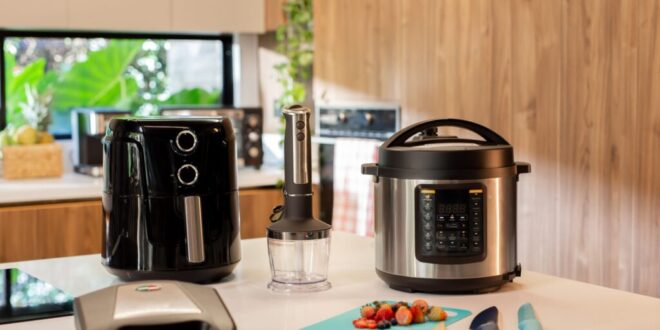Consider this: a device that is designed to cook food will need access to your mic. Photo by Shutterstock
UK Regulator Steps in As Consumer Devices Transform Homes into Data Harvesting Operations
LONDON – George Orwell’s vision of omnipresent surveillance has materialised in millions of European homes, not through government force but via the convenience of smart appliances. Air fryers that promise perfectly crisp chips can also be used to listen in on conversations. While streaming endless entertainment, the television tracks your exact location all day long. Welcome to the domestic frontier of surveillance capitalism.
The Information Commissioner’s Office in Britain issued urgent new guidelines to manufacturers this week. Research shows that 4/5 Brits own smart devices, but don’t understand the full implications of these products.
Orwellian Kitchen
Recent investigations by Consumer Advocate Group Which? The shocking extent of the domestic network has been revealed. Air fryers that ask for permission to listen to conversations, TVs that want to know where you are at all times and even TikTok can be part of this surveillance. These revelations are like dystopian novels.
Take this example: A kitchen appliance that is designed to cook food needs access to your microphone, and it shares personal household information with a Chinese social networking platform. This is not technological necessity. It’s the expansion of surveillance capitalism into private life.
The ICO’s new guidance is a long overdue regulatory response against this creeping algorithmic authoritarianism. The Information Commissioner’s Office published guidance for manufacturers and developers of smart products – from air fryers and watches to other devices – on how personal data should be “collected and used responsibly.”
Beyond Convenience
The transformation of private spaces to profit-generating zones is not only aggressive data gathering, but also a systematic process. The tech companies have weaponized the convenience. You want your air fryer working optimally? Surrender your conversations. Want seamless entertainment? Accept constant location monitoring.
Companies present intrusive data gathering as personalisation or customisation. In reality they are building detailed behavioural profiles to be monetised, while the users remain unaware of the true cost.
Both telescreens and Orwell’s telescreens have striking similarities. Both offer entertainment and utility, while secretly tracking their users. The key difference today is that surveillance devices are operated by manufactured consent, not totalitarian mandate. Convenience and connectivity lure citizens into installing monitoring devices in their homes.
The Illusion of Choice
Most troubling of all is how these systems give the impression that users have control, while in reality they are systematically limiting genuine choice. Privacy policies, the legal documents which few consumers understand, are used to collect data. The user can technically opt-out, but it will mean sacrificing some of the device’s functionality.
The Regulatory Awakening
Britain’s intervention is a sign of growing European resistance. The ICO’s guidelines join the EU’s Digital Services Act (DSA) and GDPR in a broader regulatory awakening against tech companies’ overreach. But the challenge remains enormous.
The smart device revolution is at a critical point. Either we can successfully limit corporate surveillance or accept that domestic monitoring is a normal part of the technological advancement. The stakes could not be higher. The privacy of the family home, traditionally society’s final refuge from outside observation, hangs in balance.
Tech giants today have discovered an important thing: they can control intimate details about everyday life by using the appliances designed to make life easier.
The kitchen is listening. It’s up to us whether we finally stop it.
 Costa News Spain Breaking News | English News in Spain.
Costa News Spain Breaking News | English News in Spain.






